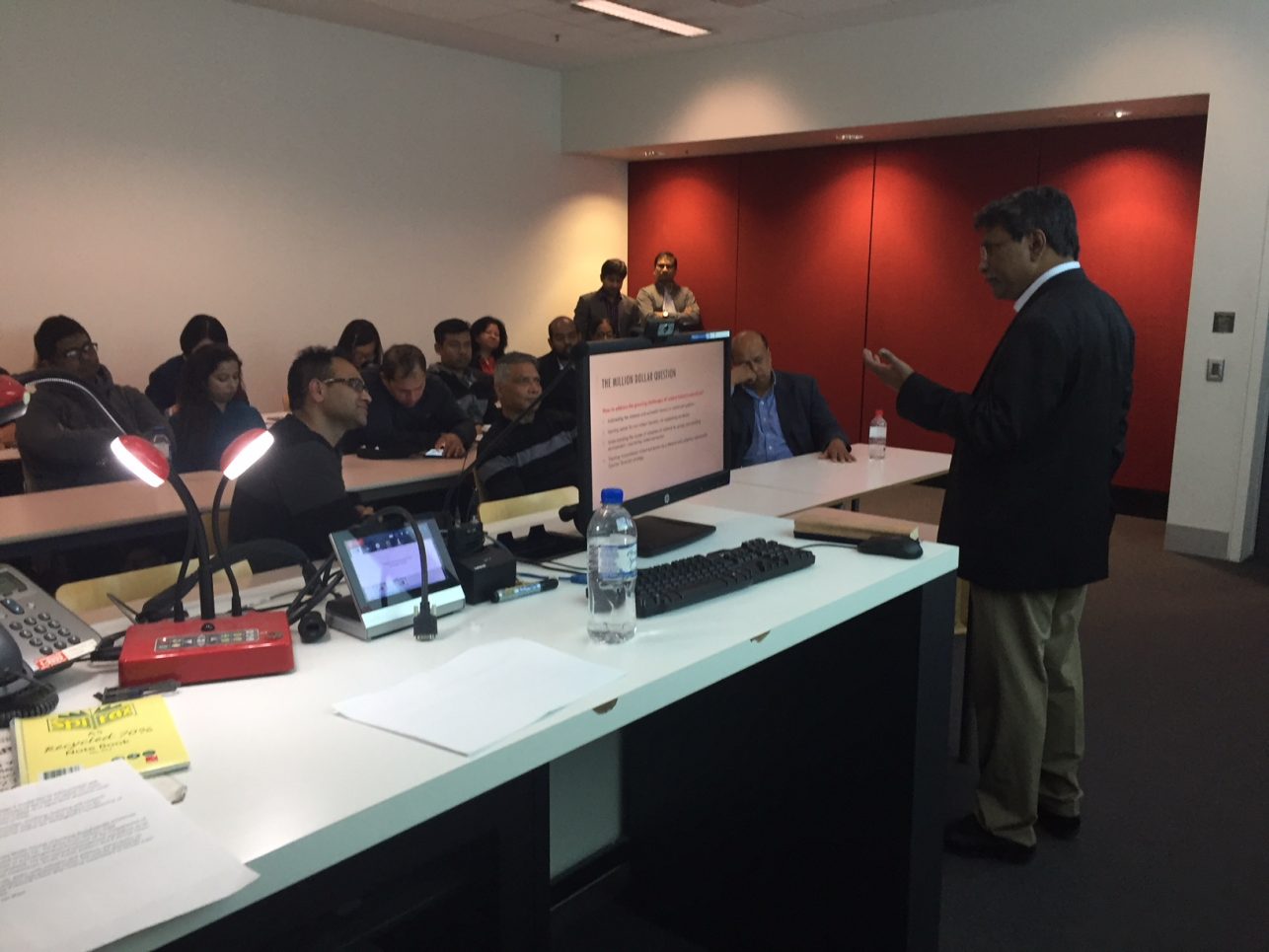Professor Ali Riaz presented a paper at the IPSA conference at Brisbane and delivered a lecture at the University Sydney. The paper entitled “Making Walls, Fencing Borders and Living on the Margin” was presented at the 25th World Congress of Political Science organized by the International Political Science Association (IPSA) at Brisbane, Australia on 22 July 2018.
The paper was included in the panel “Beyond Borders: Intrastate and Interstate Socio-Political Movements in South Asia”. Riaz argues in his paper that although fall of the Berlin Wall, globalization, and spectacular innovations in communication technologies in the 20th century promised a borderless world, more walls and fences have since been erected between nation states.
It is against this background that the paper examined the broader questions as to why nation states feel the necessity to erect such walls and fences, and how do walls and new modes of surveillance impact the lives of those who live along such borders? Riaz addressed these questions by specifically looking at the ongoing fencing of the India-Bangladesh 4,097 km long border. He insists that understanding the Indian rationale of the fencing requires exploration of the securitization mindset and rise of xenophobic discourse within Indian domestic politics, particularly since the rise of the BJP. Those who eke out a livelihood along the border are engaged in resistance to the state narrative and demarcation on the one hand while accommodating the presence of nation-states in their daily lives.
“Islamists are not homogeneous and not all Islamists espouse violent extremism.” –Ali Riaz
Professor Riaz delivered a lecture at the University of Sydney on 27 July 2018. Organized by the South Asia Study Group (SASG) the title of his lecture was “Political Islam and Violent Extremism in South Asia.”
Underscoring that South Asia has the highest number of armed formations engaged in political violence, and the greatest variations in terms of their ideological orientations, he said violent extremism has a wide variation in South Asia, some of which are inspired by religions. He said that political Islam must be located within the broad political landscape of South Asia. He also said Islamists are not homogeneous and not all Islamists espouse violent extremism.

